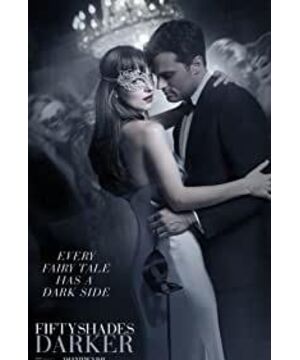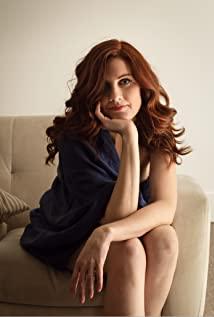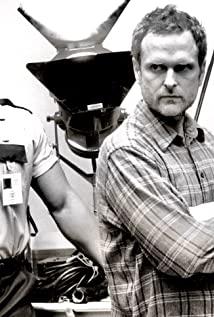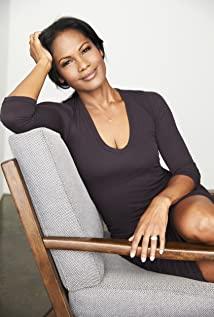was probably the most divisive movie in word-of-mouth and box office in early 2017. The critics on Rotten Tomatoes only gave it 9% freshness, but the audience gave it 60%. They said no, they were very honest, and they bought tickets to the cinema. Amid the cheers of the film critics, the North American box office performance was actually quite good. The box office has already surpassed the results of "Fifty Shades of Grey" within a few days of its release.
This huge contrast between word of mouth and box office is actually obvious in the first "Fifty Shades of Grey" in the series. When it was released on Valentine's Day last year, the box office went against the sky with one-sided negative reviews. The film costing 40 million yuan earned 570 million yuan at the box office, which is regarded as the top box office in the history of R-rated films.
The reason for this phenomenon is probably partly due to wrong expectations of this series. The novel of the same name of this series of films is a fan novel of "Twilight City". I don’t know how far behind the level is, but for European and American readers who have lost their way, the excitement of watching sadomasochistic pornography still makes this book expensive and become a super big IP. Therefore, the film became popular before it was released, and before its release, European and American film critics were worried that the release of the film would overly promote sexual violence. I have to admit that it is probably due to the religious background. The people in the United Kingdom and the United States are so cautious about this kind of subject that they can't help but want to watch it. It is really cute.
After the release of "Fifty Shades of Grey" (there are resources available), the audience discovered that this R-rated film with SM gimmicks has a cliché and blunt plot. It's embarrassing to make up the bridges with great effort. Cancer is committed. Not to mention the description of pornographic scenes, the SM plot, which is the biggest gimmick, simply disappointed the pure American audience with the mentality of watching pornographic films. It's long, and it's dawn at a critical moment. It was taken off, and the dew was exposed, but nothing happened. It was an R-rated film, and the effect of PG-13 was abruptly shot. Much of the disappointment with this franchise is the "show me this with my pants off" type of disappointment.
Now that the second film is released, knowing that the box office is so good even though the scale of the film is not large, such a phenomenal film has simply puzzled the local bumpkin film critics. With this doubt in mind, I bravely (ke) dared (bei) to watch "Fifty Shades of Darkness" by myself on Valentine's Day, and even had my ID checked for the first time (shy). The movie's storyline and erotic scenes are as lackluster as the first one, and both the male and female protagonists' looks and acting skills have been dropped. However, the viewing experience is still quite pleasant, at least judging from the reactions of the audience (90% of them are women), everyone watched it with relish, bursting out with knowing barbell-like laughter from time to time, and in the end they were all satisfied No one scolded the street.
It should be said that when viewing the Fifty Shades series as an R-rated film, I did not understand it, nor did I understand this film. Fifty Shades Darker is not a porn movie, but a wish-fulfilling melodrama, or Mary Sue in layman's terms. Thinking about it this way, the popularity of the "Fifty Shades of Grey" series is actually not difficult to understand. Looking at the world, from Qiong Yao, to Korean dramas, to "Little Times", to the various cut-out ancient costume giants that have dominated the screen in recent years, Mary Su has a good or bad reputation, and the box office ratings are very popular. Moreover, for a Mary Sue who fell in love with me like a domineering president, sex is basically secondary, and the abstinence Oppa in "You Who Came From the Stars" still makes the audience orgasm without doing anything.
Why is Mary Sue so powerful? Wilde said, "Everything in life is about sex, except sex itself. Sex is about power." I think this sentence just sheds light on the psychological roots behind Mary Sue's wish-fulfilling melodrama. Female audiences buy into the film "Fifty Shades of Grey/Black" precisely because it embodies the power inversion of women who have long been repressed in the relationship between the sexes.
In "Fifty Shades of Darkness", the female protagonist is a fool who has just graduated from work and is incompetent, and the male protagonist is a local tyrant boss, and the status of the two is vastly different. The domineering president is still domineering. This kind of domineering is manifested in that he uses imperative sentences in his speech, but what he says is what normal people want. For example, "You take $24,000!", "Follow me to New York!", "Marry me!" On
the other hand, as a weak and weak girl, she is familiar with Jane Eyre and Jane Austen. The words are all half-hearted questions, "Why did you put so much money into my account?", "Why did you buy the company I work for?" "Why did you propose to me? Why did you kneel?"
From this dialogue, the power relationship between men and women is actually clear at a glance. In an apparently high-profile relationship, the heroine controls the sovereignty of the relationship, what she says is what, and the domineering president has nothing to do with her, and is in an absolute disadvantage. The so-called domineering president just further raised the power of the heroine. A domineering president can make other women kneel, but he can only kneel and beg her, and is in an absolute disadvantage.
It is even more obvious from the countless (uninteresting) scenes in the second half of the movie. It is said that it is SM. In fact, it is the male protagonist who put a lot of effort into changing various scene props to serve the female protagonist and please the female protagonist. The female protagonist is only responsible for expressing pleasure and does not need to serve the male protagonist. The director has repeatedly expressed cool facial close-ups to the heroine, but rarely shows any pleasure the hero gets from SM. I'm exhausted for the male lead, what kind of Lei Feng spirit is this? I really don't know who is the abused and who is the abuser.
What is particularly interesting is that Dakota Johnson, the heroine of this film, is a three-generation star, and the role of silly white sweet is a three-generation ancestry. Her grandmother, Tippy Headley, starred in Hitchcock's "The Birds" and "The Thief." And "The Thief" is also the story of the most domineering president and the most sexual abuse in Hitchcock's late films. The comparison of the two films actually shows that the game between the sexes on the screen has been on the screen for half a century.
"Bad Thief" tells the story of a beauty with a childhood shadow who has a tendency to steal and is rescued and cured of mental illness by a super handsome and domineering president (Sean Connery! The most handsome 007!). The same domineering president fell in love with my story, under Hitchcock's lens is indeed a completely different style. On the surface, the male protagonist is personable, gentle and considerate. In order to save the female protagonist, he not only paid money, but also took the blame for the female protagonist regardless of morality. In the end, he must do some psychological analysis to save the female protagonist. But in essence, it is the male protagonist who is really sick in the relationship between the two. His love for the female protagonist is more derived from the pleasure of domesticating and training the female protagonist as a wild and untamable leopard cat. To this end, he seized the handle of the heroine and forced the heroine to marry, locked her on a yacht at sea, and even punished her by raping her during marriage. In the end, he stood on the moral high ground of salvation and completely controlled her.
A line spoken by the heroine at the end of the movie shows a sense of helplessness. "It's better to be with you than to go to jail." I'd rather, how reluctant! And what is the difference between a life under complete control and a prison sentence? As proposed by feminist film scholar Laura Mulvey in "Visual Pleasure and Narrative Cinema", gaining control over women by punishing/saving guilty women realizes the viewer's self-projection on the male protagonist. Sadistic, satisfying the narcissism of the viewer. In "Fifty Shades of Darkness", although they are still the domineering president and silly Bai Tian, the strength and weakness are completely reversed. Changing to a domineering president is a pervert with a shadow of childhood, the male has become a nightmare character (and this childhood shadow is completely functionalized, how can no one take care of the president in his childhood), and the heroine has become the rescue/controller. Although the heroine's actions are passive, her ability to refuse is itself an initiative.
There are plots where the male and female protagonists are alone on a yacht in "The Thief" and "Fifty Shades of Black", but the difference is that the domineering president in "The Thief" imprisoned the two alone at sea in an attempt to impress the heroine. The heroine only feared and resented him. In the end, the rape of the male lead directly led to the heroine wanting to commit suicide but could not. This rape scene, Hitchcock is still very dramatic under the restrictions of the Hayes Code. The female protagonist screamed No, although the voice was much louder than in "Fifty Shades of Grey", but there was no resistance. In contrast, the female protagonist in Fifty Shades of Grey whispered No in the elevator, which is much more powerful. No is No, the domineering president can only stop chasing her and watch her go away helplessly. In the yacht scene in "Fifty Shades of Darkness", the domineering president completely opens up to the heroine, analyzes his heart, and finally lets the heroine take the helm alone. This plot, to say that there is no symbolic meaning, I do not believe.
Laura Mulvey also proposed in "Visual Pleasure and Narrative Film" that another psychological mechanism that triggers the pleasure of watching movies is to materialize women into others through the "male gaze". By means of eye-matching, when the close-up shot recklessly sweeps over the female body, she becomes a spectacle to be watched. The audience also used the camera to satisfy their voyeurism, as if they also possessed the women on the screen.
In "The Thief", the male protagonist's gaze is everywhere from the first appearance of the female protagonist, and it is obvious that the female protagonist even directly said when she resisted the male protagonist, "Are you not sick? Isn't your gaze pathological? ?" And in Fifty Shades of Darkness, the gaze is reversed. Through the line of sight of the female protagonist Anna, a large section of close-up shots extremely render the male protagonist's naked upper body. I can remember at least three scenes where the heroine watched the hero, wearing lipstick, wiping lipstick, and the heroine peeping at the man's fitness. The last scene is simply deliberately masculine. In contrast, the female protagonist's body is displayed from an objective perspective, rarely associated with the male protagonist's gaze.
This reversal of staring and fetish-style transformation of objectified women is also reflected in the dress-up plot in Fifty Shades of Darkness. There is a scene in the movie where the CEO wants to take the heroine to a charity dinner, and the heroine says, "But I don't have the right clothes, and I don't know how to get my hair done!" "Pretty Woman in the Moon" and a certain domestic drama, "swipe my card", appeared. But the comparison between this scene and Hitchcock's other film "Vertigo" is even more interesting.
In Vertigo, James Stewart's detective is fascinated by the mysterious goddess figure played by Kim Novak's heroine, who is simply a goddess who has been paid to cover for a wife killer people. When the two met again, Stewart couldn't help forcing the heroine to pretend to be the goddess in his mind again, and the heroine's step by step giving up the bottom line of being dressed up became a symbol of her giving up her identity and being completely controlled. The moment Novak combs her hair and walks out of the bathroom, her ego disappears, completely reduced to an object watched by men.
And in "Fifty Shades of Darkness", the hero just took the heroine to the barber shop, but the heroine got mad and started various works. The hero had no choice but to take the heroine home. The personal stylist came to provide service, but was reprimanded by the hostess for wanting to take a look by the side, so he had to leave angrily, leaving the hostess and the male stylist behind. The clothes were chosen casually, and even the heroine put on sexy lingerie, and the hero only dared to stand far away from the door. The heroine asked, "Do you want to just stand and watch?" Only then did the hero dare to come in and serve the heroine.
Not to mention that in the whole movie, the male protagonist is the one who has been transformed and rescued/cured. And it is self-evident that the male protagonist who controls such a high weight and is in charge of the wind and rain in the workplace will satisfy the narcissistic pleasure of the female audience who project themselves on the ordinary, beautiful and kind female protagonist. Especially for women who are oppressed, constructed, and squeezed between the workplace and the family in real life, what else is there to say when they go to the cinema to watch such a flashy movie with an IQ break? Compared with this sense of control of the power of the sexes, it really doesn't matter whether there are real pornographic scenes, what a bicycle!
Could it be that Mary Sue movies and TV series are promoting women's rights? Haha, stop kidding, who would take Mary Sue seriously? This kind of movie is like fried chicken and ice cream when you are in a bad mood. After consumption, there will be nothing left except the shriveled wallet and the fat that grows. After a brief two hours of glamorous masturbation-style brain massage, you still have to step out of the movie theater and into the gray reality.
View more about Fifty Shades Darker reviews











